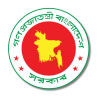BTRC draft rules on OTT: Govt given indemnity for its actions

The final draft of BTRC's regulations for digital, social media, and OTT platforms allows the government to order individuals to take down content, empowers it to order social media companies to block content, and grants it indemnity for its actions under the law.
The government can issue such orders if the content threatens the "unity, integrity, defence, security, or sovereignty of Bangladesh, [and its] friendly relations with foreign states" or "is against the Liberation War of Bangladesh, the spirit of the Liberation War, the Father of the Nation, the national anthem, or the national flag".
In addition, such orders can be made if the content "threatens the secrecy of the government" or "creates unrest or disorder or deteriorates the law and order situation" or "threatens public order".
The final draft was submitted yesterday before the High Court, through its lawyer Khandaker Reza-E-Raquib, in compliance with a directive the court issued on June 13.
From the get-go, the draft regulations had made it illegal to host content that can be deemed anti-state, and the final draft too upholds that, and in such situations the government can ask "intermediaries" to remove or block access to these content within 72 hours.
The draft defines "intermediaries" as any person who on behalf of another "receives, stores or transmits electronic records or provides any service with respect to such records". This includes telecom service providers, network service providers, internet service providers, social media firms, web hosting services, search engines, online payment sites, and online markets.
The final draft empowers the government to issue take-down orders to individuals or entities, within or outside of Bangladesh.
If the order is not complied with, Bangladesh Telecommunication Regulatory Commission (BTRC) could order access to the content be blocked.
All these provisions are also applicable for "publishers of news and current affairs content or a publisher of an online curated content".
While granting the government indemnity, the draft states, "If any person is affected by any order or instruction issued under the provisions of this regulation [...] in good faith, then he may not file any suit for compensation against the minister or an employee of the government, or the chairman, other commissioners, or any officer, employee or consultant of the commission."
The draft regulation did not define "in good faith".
It also states that the commission will not be liable for any loss or damage incurred by stakeholders.
The final draft of the regulation states that all intermediaries must keep a team on the ground to liaise with law enforcement round the clock and coordinate with the BTRC to ensure compliance with the regulation.
All intermediaries providing such content must be registered, and the registration depends on their adherence to these regulations, and the commission harbours the power to revoke or deny registration. All registrations are valid for five years at a stretch.
The latest draft kept intact provisions for fines if the regulations were violated but removed the ceilings that were mentioned in the previous drafts. Instead, it just added that the "fine should not be excessive".
Speaking at a meeting at the home ministry, chief of the cabinet committee on law and order and Liberation War Affairs Minister AKM Mozammel Haque said the government was preparing to clamp down on rumours being spread from abroad.
"Such cyber criminals can't be controlled as they all live overseas. We will be examining how they can be identified and how steps can be taken against them," he said.
In July 2020, Supreme Court lawyer Md Tanvir Ahmed submitted a writ petition to the HC saying that several over-the-top (OTT) platforms contain questionable and obscene content and films from Bangladesh and India that cause moral degradation of people.
The HC bench of Justice JBM Hassan and Justice Razik-Al-Jalil fixed November 29 for passing any further order on this matter. On that day, the Ministry of Information too will be submitting an updated regulation on OTT platforms.


 For all latest news, follow The Daily Star's Google News channel.
For all latest news, follow The Daily Star's Google News channel. 








Comments